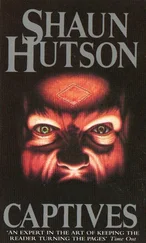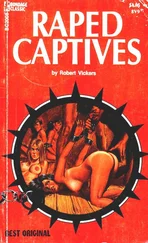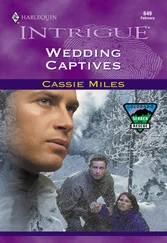Norman Manea - Captives
Здесь есть возможность читать онлайн «Norman Manea - Captives» весь текст электронной книги совершенно бесплатно (целиком полную версию без сокращений). В некоторых случаях можно слушать аудио, скачать через торрент в формате fb2 и присутствует краткое содержание. Год выпуска: 2014, Издательство: New Directions, Жанр: Современная проза, на английском языке. Описание произведения, (предисловие) а так же отзывы посетителей доступны на портале библиотеки ЛибКат.
- Название:Captives
- Автор:
- Издательство:New Directions
- Жанр:
- Год:2014
- ISBN:нет данных
- Рейтинг книги:3 / 5. Голосов: 1
-
Избранное:Добавить в избранное
- Отзывы:
-
Ваша оценка:
- 60
- 1
- 2
- 3
- 4
- 5
Captives: краткое содержание, описание и аннотация
Предлагаем к чтению аннотацию, описание, краткое содержание или предисловие (зависит от того, что написал сам автор книги «Captives»). Если вы не нашли необходимую информацию о книге — напишите в комментариях, мы постараемся отыскать её.
Captives
This is a moving account of a country shaken by communism and anti-Semitism and haunted by recent atrocities, from "a distinguished writer whose vision of totalitarianism is close to Kafka's cloudy menace, universal yet internalized" (Richard Eder,
).
Captives — читать онлайн бесплатно полную книгу (весь текст) целиком
Ниже представлен текст книги, разбитый по страницам. Система сохранения места последней прочитанной страницы, позволяет с удобством читать онлайн бесплатно книгу «Captives», без необходимости каждый раз заново искать на чём Вы остановились. Поставьте закладку, и сможете в любой момент перейти на страницу, на которой закончили чтение.
Интервал:
Закладка:
Perhaps the room will preserve no sign of the stranger, will only remain what it is, her room of adjectives, diminutives, epistles, epithets, her cot and cage, maybe the objects will be pacified, purified: nowhere will they feel, hear, forebode, and foresee the rotations — rusty and relived, the rotations and waverings, weaknesses and wonderings, rotations, reelings, ruin.
“You”
Artillery Captain Bogdan Zubcu came back from the war for you. He returned to his wife and daughter a few months after the fighting ceased. He looked exhausted. He’d shared in the hard campaigns to the East and West: he’d followed the slaughter. For him the war ended in Bohemia. Still, he came home safe. Unwounded. Three years in the murderous whirlwind left no visible scars. He’d never been talkative, so the silence of those first weeks came as no surprise. Quiet and discreet like the Captain, the family went about their lives — happily, it seemed. Zubcu was hollow-eyed, though. An accelerated tick in the left part of his cheek spoke of something more than fatigue. He should have recovered. He slept a lot. He rarely left home, but when he did, he’d take long, twilight walks with his little girl. Sometimes he spoke to you — inventing stories and games — but he tired quickly, and would lower his face in shame, interrupt the sentence he’d just begun, and then bring his hand to his throat, a pale hand with trembling fingers. Not speaking, the two of you would return from those afternoon walks, and days would pass before the Captain left his room again.
He met other people with hasty, tortuous friendliness. The Captain was known to have soldiered through the entire war on both fronts. This gave him a certain status in the little community, so it was natural that local activists approached him. These people, who presented themselves as “initiating plans for popular participation,” offered the Captain a role in the local, postwar reorganization. They saw their offers as signs of trust and esteem. They’d talk briefly with the Captain. Then Bogdan Zubcu would ask for more time. He didn’t seem to understand how he might assist “The Effort,” although he repeated that he understood their ideas, their scale, and the drastic revolutionary methods through which they hoped to accomplish their goals. He was convinced they overestimated his strengths and abilities. Their increasingly concrete proposals flustered him. The left side of his cheek contracted unpleasantly. He’d blink more and more. The insistence of the new “combatants” tired him. His brow would grow pale and damp. Answers came with difficulty. His pale, trembling fingers would circle his thin, blue-veined neck.
He took to wandering in the alleys, straying from home for afternoons or sometimes whole days. He would return calmer, joking and bewildering his wife and you, his daughter, with his drawn-out laughter. He’d dance them through the middle of the room, and turn the courtyard upside down with noisy, childish games. Thanks to his former comrades in arms — now among the most energetic activists — he’d often bring back foods that had grown scarce in those postwar days when provisions were so hard to find. As the Captain told it, some of his former comrades held new, key positions in the city’s administration. Ill-at-ease when they met him now and eager to rid themselves of a person they could only perceive as a problem, the Captain’s former pals would give him things he hadn’t asked for and put off talking about the proposals of the activists who’d courted him.
Frightened and polite at first, the Captain slid into incoherence. The authorities hesitated to renew their requests. Still, they went on waiting for his answer; Zubcu kept delaying, which deepened their confusion.
The Captain walked around the city. He’d look at the “innovations,” those vast new building projects, and try to make sense of the changes. Then he’d come home full of news about small events that shook the old city’s settled order in preparation for its new face. He looked astonished — down to his soul — and disquiet showed in his face. The transient liveliness of these homecomings ended in days of total silence. Then the Captain wouldn’t leave his room. He’d avoid his wife and daughter’s eyes. Maybe he felt guilty for his passive hesitations. Then he would leave again on long, solitary walks — sometimes he took the little girl with him, and her long, lusterless hair trailed behind her.
The Captain’s bouts of drunken liveliness didn’t always end in apathy; sometimes they finished in pensive moods, drawn out and bizarre. He kept putting off finding steady work. Since she was still teaching, his wife avoided rushing his choice of occupation. She was convinced that after suffering through the war, he needed more time to readjust, though she waited for the moment when he’d initiate a conversation.
Captain Bogdan Zubcu was never wounded during the three years of war that carried him from the East to the West. He was a tall, slim man with big blue eyes. He had deep, dark circles around his eyes, and his gaze was both open and vacant. Nothing in his appearance or manner justified serious concern. His excessive silences, the nervous throbbing of his left cheek, which amounted to a sort of permanent blink, and the trembling of his hands circling his thin throat as he searched for words — these seemed to be part of a natural, passing fatigue. And the two beings by his side resembled him. The peace of their home extinguished immediate panic. The Captain slept a lot, and took walks on the outskirts of the city, holding hands with the silent little girl hidden under her thick, lackluster hair. Yet with his open gaze and his secret hermetically sealed, the man seemed fragile, unable to find the way back to himself or toward the family that waited for him.
• • •
Memories burst from their shroud of ashen fog: filaments of flame. Gestures forgotten for a month, a day, an hour, incidents forever lost — mislaid in the blink of an eye — come back, or perhaps only their undead, rebellious shades. His face welled forth, young and restless, shaken, roused by departures, returns, brief hopes, even if rigid now, wild and mute, or convulsed by desperate wakings. Hard drinking had befuddled him, it seemed, a hand forgotten around his throat.
The days went on, one after the next, like an endless, lazy Sunday. Only with difficulty could he let himself be known and loved, but he used his charismatic voice to maintain his frail ally, his girl, his faithful audience of one in her state of sickly admiration. Then the long day came when freezing silence barred the door to his room and the heavy door to the shed where he now gazed at the dusty scooters, sleds, and wooden horses — which his little friend played with while waiting for him to come home.
The hanged-man pendulum would vibrate and reel in the shed filled with old toys. Thirsting for death, the body would swing in its frantic haste toward oblivion. Then the rope broke under his serene face — perhaps the last favor granted to his daughter: her victory over his desire for death. A red streak encircled his neck, a magic sign of salvation. The dead parent rose before his daughter’s eyes like a curse and a mockery.
You would have to forget the body shattered by weakness and the fearful exhaustion of the following months. The teapot would escape from your hands, the fork’s jabs went astray, and the rows of books overlapped nonsensically. Forget what was and what followed, down to the final traces. Escape to the mountains and stare for hours on end at the empty room and the tall, polished wooden bed in the house that belonged to the schoolteacher, Vasile Obreja; listen to the swish of the small rubber wheels rolling his wheelchair; look at the mountains, the spring, the forest; lose yourself in the silence of the evenings under the pines; gaze vacantly without seeing or hearing, as if nothing could have been, nor could be. Forget the feeble little girl executing instructions from a book of popular medicine, panting over the half-man, giving rhythm to despair. Forget her obstinate will to revive him, the miracle of salvation, and the somnolent weeks when the dead man reeled, teetering in his second birth, under the care of the child who had brought him back. Forget the extravagant laughter of the suicide with the beautiful face whose noose you untied to bring back a pale, waxy countenance, which lacked the ugliness that turns hanged men’s cheeks to stone.
Читать дальшеИнтервал:
Закладка:
Похожие книги на «Captives»
Представляем Вашему вниманию похожие книги на «Captives» списком для выбора. Мы отобрали схожую по названию и смыслу литературу в надежде предоставить читателям больше вариантов отыскать новые, интересные, ещё непрочитанные произведения.
Обсуждение, отзывы о книге «Captives» и просто собственные мнения читателей. Оставьте ваши комментарии, напишите, что Вы думаете о произведении, его смысле или главных героях. Укажите что конкретно понравилось, а что нет, и почему Вы так считаете.












